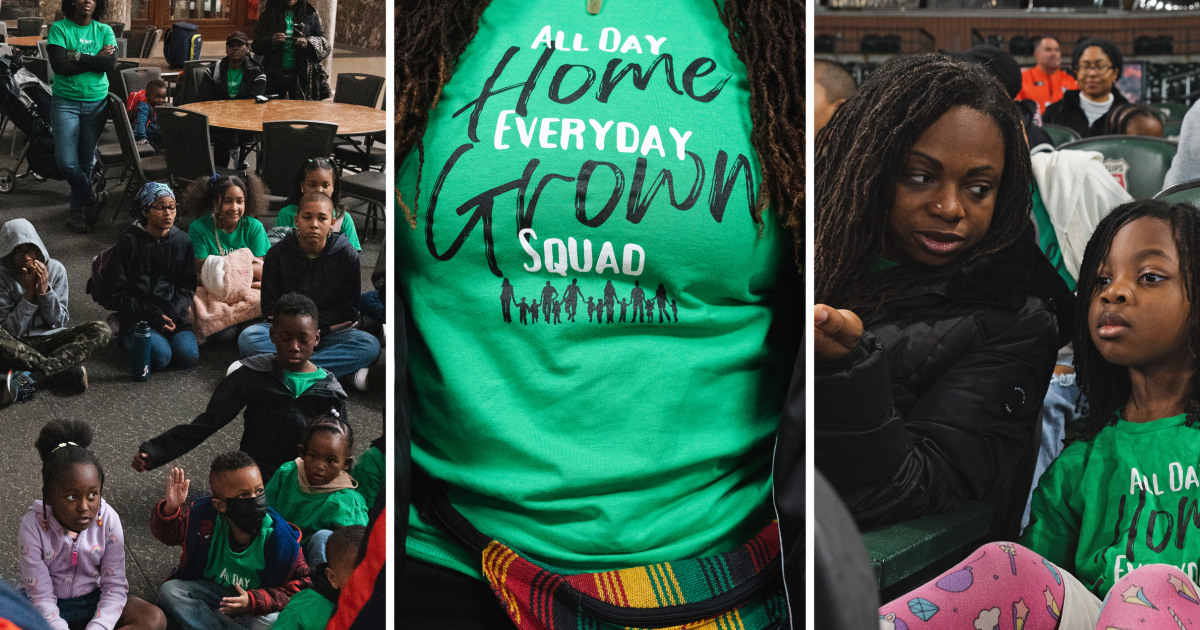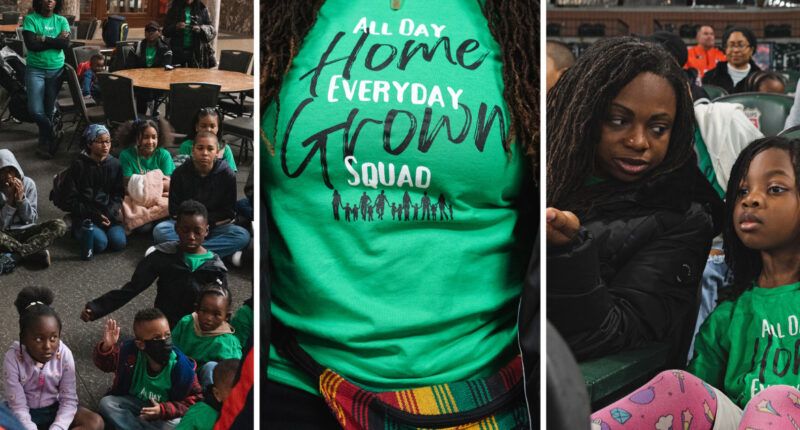
For Thorpe and the other families, the benefits of home-schooling have been many. They reported better academic performance by their children, improved mental well-being, and stronger familial bonds. “If they need help with something, the older ones help the younger ones,” Thorpe said. “It fosters family. It helps strengthen the bonds among siblings. They look out for one another.”
Some 10 and 15 years ago, resources tailored for Black parents looking to home-school were hard to find. This is why advocates like Thorpe started groups to reach Black home-schoolers far and wide. Hers is among dozens of groups where home-schoolers share resources, curriculum, advice and more.
Some of the families told NBC News that they initially joined local co-cops, largely white-run and often religious, but found the experience to be isolating, full of microaggressions and highly politicized. So they decided to form their own groups, centering the experiences and needs of Black and Indigenous families and other people of color.
Jessica Dulaney, communications director with the nonprofit Coalition for Responsible Home Education, said the experiences of Black families track with the fact that home-schooling was systemically deregulated in the 1980s and ’90s after Christian fundamentalists fought to prioritize home-school education that aligned with their ideologies and excluded all others.
“Traditionally many of the most popular home-school curriculum and resources over the last few decades are full of that ideology,” Dulaney said. “So it’s oftentimes difficult for home-schooling parents who are Black or brown or otherwise from more marginalized communities to find home-schooling resources that reflect their history, their culture, their experiences, and sometimes that can translate into a home-school group.”
She said that while home-schooling in co-ops or other community groups can be a great way to identify and mitigate the child abuse that is sometimes present in isolated home-school settings, parents should do the research necessary to “determine if a home-school co-op is the best fit for your family.”
“The best home-school groups are those that are as welcoming and inclusive as possible,” she said.
Financial barriers to Black home-schooling
The current state of Black home-schooling marks a shift in the practice. For years, Black home-schoolers drew criticism for turning away from a traditional schooling system that Black people had fought so hard to be a part of. What was once perceived as a practice for wealthy white families now seems accessible, and even preferable, for some working- or middle-class Black families.
Cheryl Fields-Smith, a professor of education at the University of Georgia, explored the rise of single Black mothers choosing to home-school in her 2020 book “Exploring Single Black Mothers’ Resistance Through Homeschooling.” Single mothers usually make home-schooling work by planning around their schedules and relying on co-ops and school-based programs like extracurricular activities and after-school sports.
Camille Kirksey, who is not a single mother, home-schools her sons, 15 and 11, and her 7-year-old daughter, in their Detroit hometown and has devoted herself to helping other parents begin home-schooling, no matter their financial situations or marital status. Through her platform, The Intuitive Homeschooler, she helps parents and guardians navigate state home-schooling requirements and find curriculum, and provides overall guidance.
Source: | This article originally belongs to Nbcnews.com










